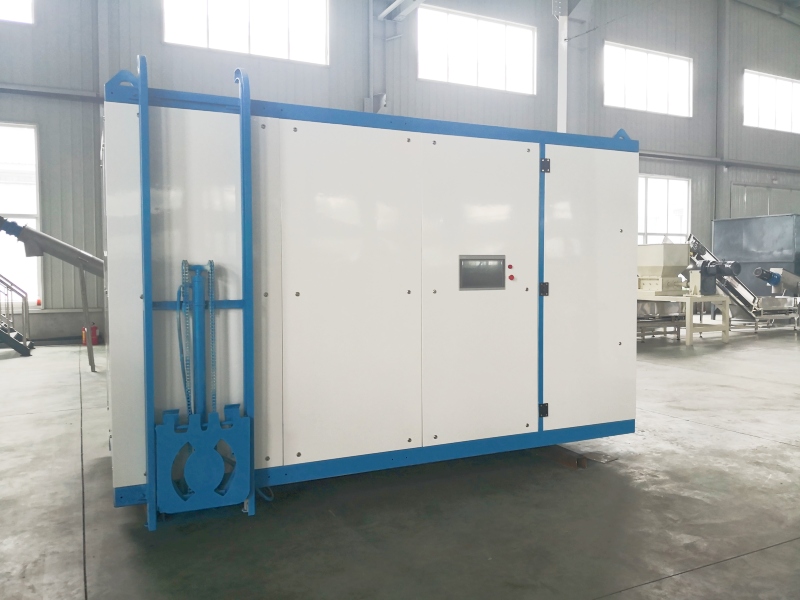
Introduction:
In the face of global challenges such as food scarcity and environmental sustainability, the effective management of food waste has become paramount. One innovative solution to address this issue is the Waste Food Dewatering Machine, a technology designed to efficiently reduce the moisture content in food waste, thereby facilitating easier disposal and promoting sustainable waste management practices.
Key Features:
Moisture Reduction Technology:
The waste food dewatering machine employs advanced moisture reduction technology to extract water content from food waste, significantly reducing its volume. This process not only minimizes the weight of the waste but also mitigates the potential for foul odors and microbial growth.
Energy-Efficient Operation:
Many waste food dewatering machines are designed with energy efficiency in mind, utilizing cutting-edge mechanisms to achieve the dewatering process with minimal energy consumption. This makes them environmentally friendly and cost-effective for businesses and municipalities seeking sustainable waste management solutions.
Compact Design:
The machines are often compact and space-efficient, making them suitable for installation in various settings, including commercial kitchens, food processing units, and waste treatment facilities. The compact design ensures that the technology can be integrated seamlessly into existing waste management infrastructures.
Versatility in Waste Types:
Waste food dewatering machines are versatile and capable of handling a wide range of food waste types, including fruits, vegetables, kitchen scraps, and leftover food from restaurants. This versatility makes them a practical choice for diverse applications across the food industry.
Benefits:
Reduced Transportation Costs:
By significantly reducing the moisture content of food waste, these machines contribute to a decrease in transportation costs associated with waste disposal. The lighter and more compact waste requires fewer resources for collection and transportation.
Enhanced Anaerobic Digestion:
The dewatered food waste is better suited for anaerobic digestion, a process that converts organic waste into biogas and organic fertilizer. The enhanced quality of the dewatered waste improves the efficiency of anaerobic digestion systems, providing an additional avenue for sustainable energy production.
Compliance with Environmental Regulations:
Waste food dewatering machines assist businesses and municipalities in meeting stringent environmental regulations related to waste disposal. By reducing the environmental impact of food waste, organizations can demonstrate their commitment to responsible and sustainable practices.
Conclusion:
The Waste Food Dewatering Machine represents a crucial step towards achieving a more sustainable and efficient approach to food waste management. With its advanced technology, energy efficiency, and versatility, this innovative solution holds the potential to transform the way we handle food waste, contributing to a greener and more sustainable future.




If your company wants to establish a business relationship with us, please briefly describe the cooperation intention and send an email to:chuantaiscrewpress@gmail.com























































































![[list:title]](/static/upload/image/20240528/1716877114510915.jpg)